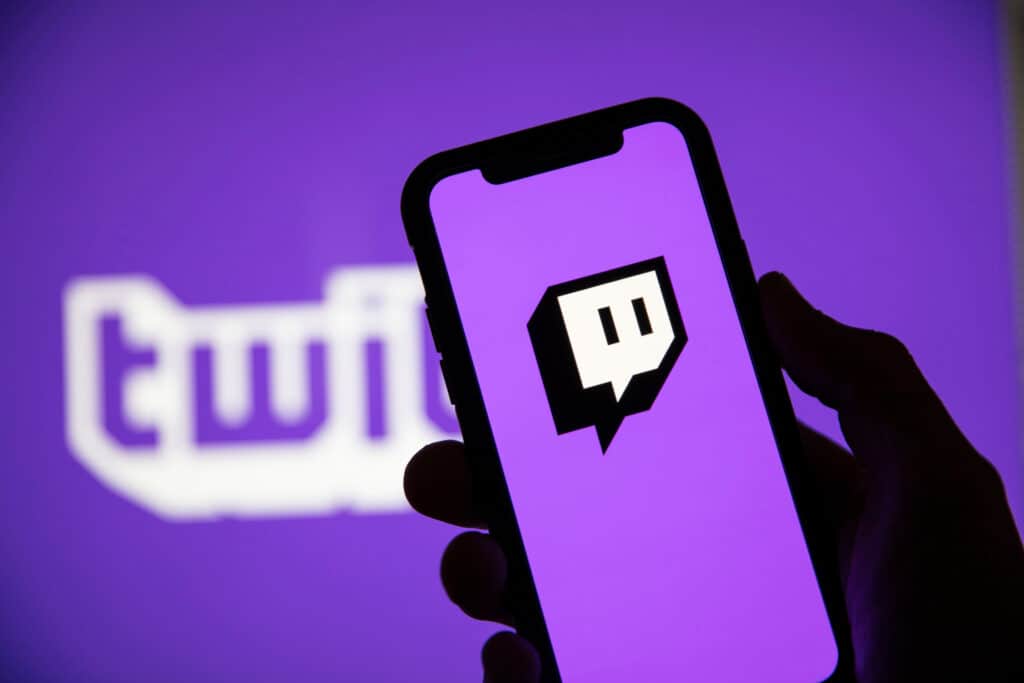While you may not be familiar with the names Pokimane, Shroud, or Ninja, you’re likely to have heard of T-Pain, Deadmau5, and Terry Crews. What do these six have in common? They all stream to the popular live streaming service, Twitch.
Under the name Justin.tv, Twitch was originally founded in 2007 by Justin Khan and Emmett Shear. Today, the immensely popular streaming site is owned by Amazon.com, Inc. which reportedly came as a result of a $970 million bid and a failed deal with Google.

Let’s take a look at how the streaming platform came to be, how it became so successful, how it makes money, and how it ended up as one of Amazon’s many subsidiary companies. Plus, let’s find out what other surprising companies Amazon and Jeff Bezos own.
How Twitch Began
Back in 2007, a platform called Justin.tv was created by internet entrepreneurs Justin Khan and Emmett Shear. The experimental website was used as a platform for Justin to broadcast his life 24/7 in a series of live video streams.
The live streams, which began at midnight on the nineteenth of March 2007, were dubbed “life casts” and detailed every aspect of Justin’s life except for bathroom and bathing breaks. That same year, Justin stopped uploading his life casts and opened the network up to other channels.
After becoming an open network, Justin.tv experienced a surge in popularity which saw the company grow and expand at a healthy rate. One of its categories, “Gaming”, garnered much attention and became its USP.
Based on the ever-growing popularity of the gaming category, in June of 2011, Justin removed “Gaming” from Justin.tv and relaunched it on a new site called Twitch. As Twitch, the platform was incredibly successful and went on to catch the eye of Amazon.
How Amazon.com, Inc. Acquired Twitch
For a long time, Twitch was financed solely by substantial venture capital investments from companies like Thrive Capital and Bessemer Venture Partners. By 2013, Twitch had over 43-million monthly viewers and low frame rates and lag issues began plaguing the platform.
Many believe that the reason for Twitch being open to being acquired stemmed from their technological shortcomings when adapting to their dramatic increase in viewership. That’s why when the news broke on 25 August 2014 that Amazon had acquired it for a cool $970 million, people weren’t too surprised.
However, what many people are surprised to learn is that Google was set to acquire Twitch for a massive $1 billion but pulled out of the deal at the last minute due to concerns over potential antitrust litigation. Yahoo was also interested in acquiring Twitch, with an offer equal to Amazon’s, but their offer was declined.
Since its acquisition, Twitch has not only increased its resources and technological capabilities but has also expanded its offering. Twitch took a leaf out of its new owner’s book and acquired GoodGame Agency, introduced its own in-app microtransaction currency, Curse, Inc, ClipMine, and IGDB.
For more insight on how Amazon changed Twitch, the video below details just that.
How Twitch Makes Money
Because Twitch is a streaming platform that is free for streamers to use and their streams are free for viewers to watch, many wonder how the company makes its money. Twitch makes money in three ways: integrated advertising, subscriptions, and “bits”.
Advertisers pay to have their ads integrated into streams and on the website, while “bits” are the in-app currency that viewers use to “cheer” their favorite streamers. While the streamer gets a 30% cut of the bits, Twitch pockets the remaining 70%.
The subscription-based part of Twitch’s business model is supposedly where most of its income is generated. With subscriptions starting at $4.99 per month, and Amazon Prime customers being eligible for one free monthly subscription to a streamer of their choice, it’s easy to see how this beneficial model benefits the business.
Jeff Bezos’ Other Companies
As you know, Jeff Bezos is the founder and CEO of Amazon. Other than Twitch, he is also the owner of many other companies. For starters, he owns The Washington Post — a popular American daily newspaper — and he founded Blue Origin, the space exploration company.
The tech giant and e-commerce entrepreneur, either on his own or through Amazon, owns more than 40 subsidiaries. Some of the more recognizable names on this list of subsidiaries include Whole Foods, Audible, IMDb, Goodreads, PillPack, Zappos, and Ring, Inc.